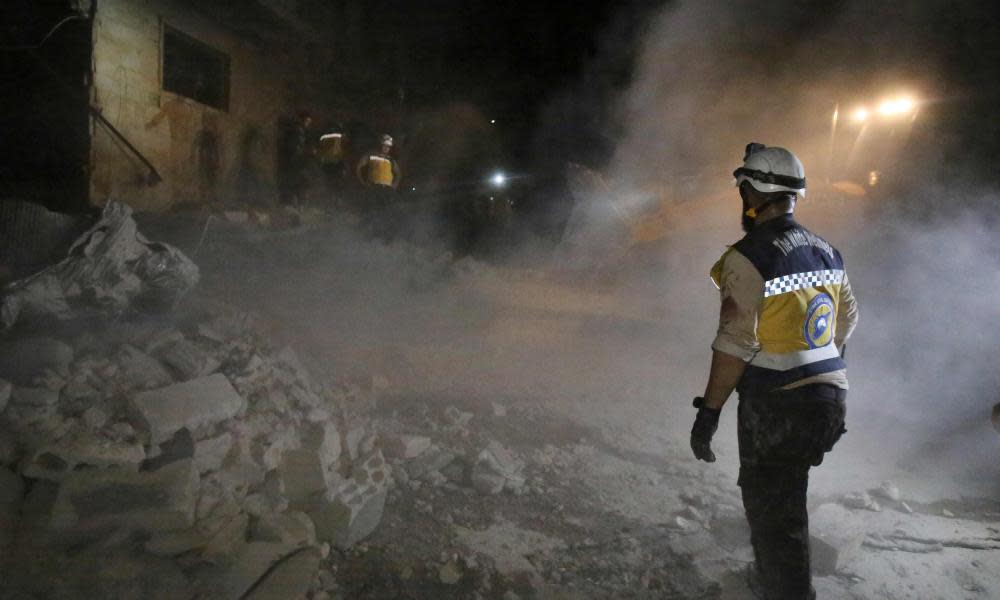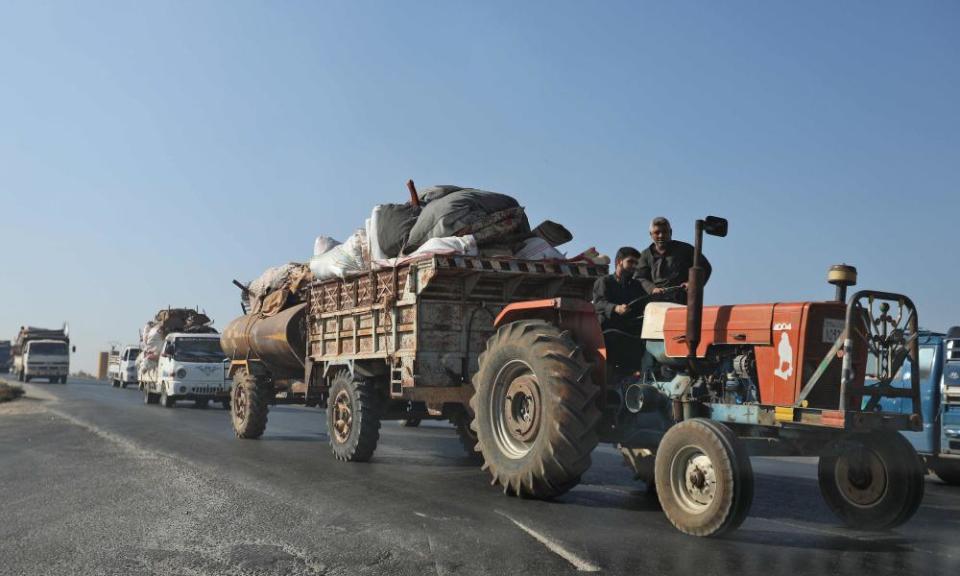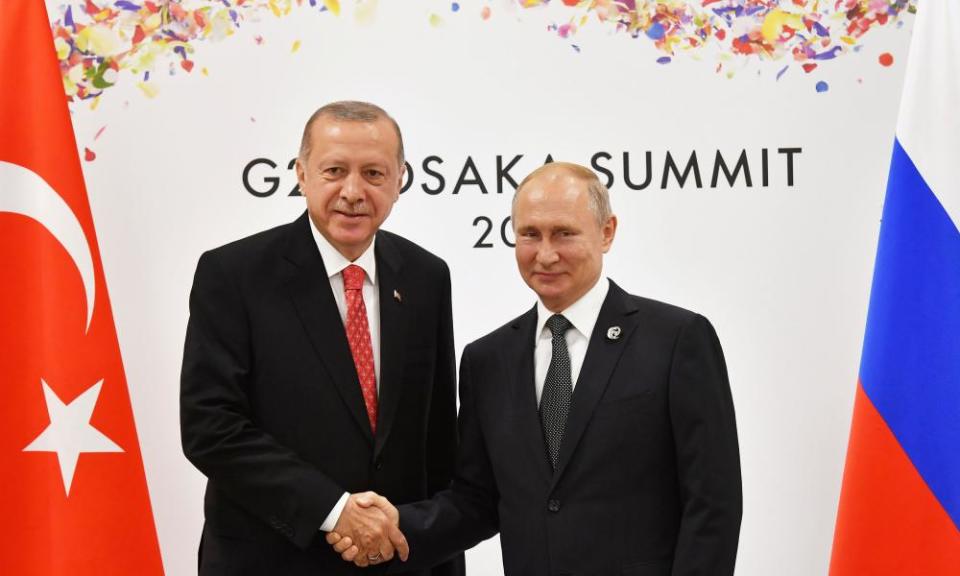The Observer view on Syria and the west’s shameful failure to act

The crisis in Syria does not feature high on the agenda at this weekend’s G7 summit in Biarritz. The absence of two key players – Russia and Turkey – means any substantive initiatives are unlikely. Donald Trump has washed his hands of the conflict, although Pentagon chiefs are resisting his demand to withdraw all US forces. European leaders, beset by many other urgent problems, seem to prefer not to think about Syria at all.
This attitude is intolerably shortsighted. Western governments’ neglect of the eight-year war and, in particular, its impact on civilians is a sadly familiar phenomenon, but no more acceptable for being predictable. Their involvement has been sporadic and uneven, spurred from time to time by headline events such as chemical weapons attacks or war crimes too horrific to ignore. The campaign against Islamic State (Isis) was given priority.

The price of this collective failure to tackle head-on one of the greatest strategic challenges of our time is now being paid, once again, by Syria’s population. In Idlib, north-west Syria, more than 3 million people are under fire from Syrian regime forces, backed by Russian bombers and artillery. More than 800 noncombatants have died since April. At least half-a-million civilians, many previously displaced, have fled towards the Turkish border.
Despite repeated appeals for help by the UN, aid agencies and local organisations such as the White Helmets, the slaughter and mayhem are intensifying following last week’s fall to Bashar al-Assad’s troops of the southern Idlib town of Khan Sheikhoun. The plight of the fleeing population is compounded by Turkey’s reluctance to accept more refugees and its determination to force many among 3.6 million Syrians already in Turkey out of the big cities and back across the border.
If not out of compassion then for reasons of narrow self-interest, western leaders must pay more attention. Recep Tayyip Erdoğan, Turkey’s president, has helped hold the line in Idlib since last year, when he set up military observation posts to keep regime forces, rebels and jihadists apart. But this arrangement is falling apart. Last week a Turkish convoy was attacked, prompting Erdoğan to seek an emergency meeting with Vladimir Putin, his Russian counterpart.

If a politically weakened Erdoğan loses patience, the consequences could be dire. In line with previous Turkish operations in al-Bab, Afrin and Azaz, he could order more military incursions into Syria to create what Ankara calls refugee “safe havens”. He may further challenge the pro-western Syrian Kurds’ control of areas east of the Euphrates. And by blocking the main escape route for Idlib’s civilians, he could trigger another mass refugee exodus in the direction of Europe, similar to what happened in 2015.
All this matters greatly for the wider stability of the Middle East. Despite Turkey’s view of them as terrorists, Syria’s Kurds, backed on the ground by US and British special forces, are a vital element in the unfinished fight against Isis. Reports across the region speak of a significant Isis resurgence in northern Syria and Iraq. Sleeper cells have reportedly mounted 43 attacks in Syrian Kurdish areas since late July. There is even a suspicion that Turkey is covertly assisting them.
At the same time Israel, with Trump’s blessing and possibly Putin’s too, is using Syrian chaos to widen an undeclared war with Iran. It has launched numerous airstrikes on Iranian forces and their proxies inside Syria. Now it is expanding its campaign to include Iranian targets in Iraq. Munitions warehouses and a military base north of Baghdad used by Iran’s Revolutionary Guards were hit in recent, unacknowledged Israeli strikes. These escalations presage ever-deepening instability.
Idlib, Isis, Israel-Iran: it is a toxic mix. And all are byproducts of the west’s abject failure to move decisively to halt the Syrian war.

 Yahoo News
Yahoo News 
